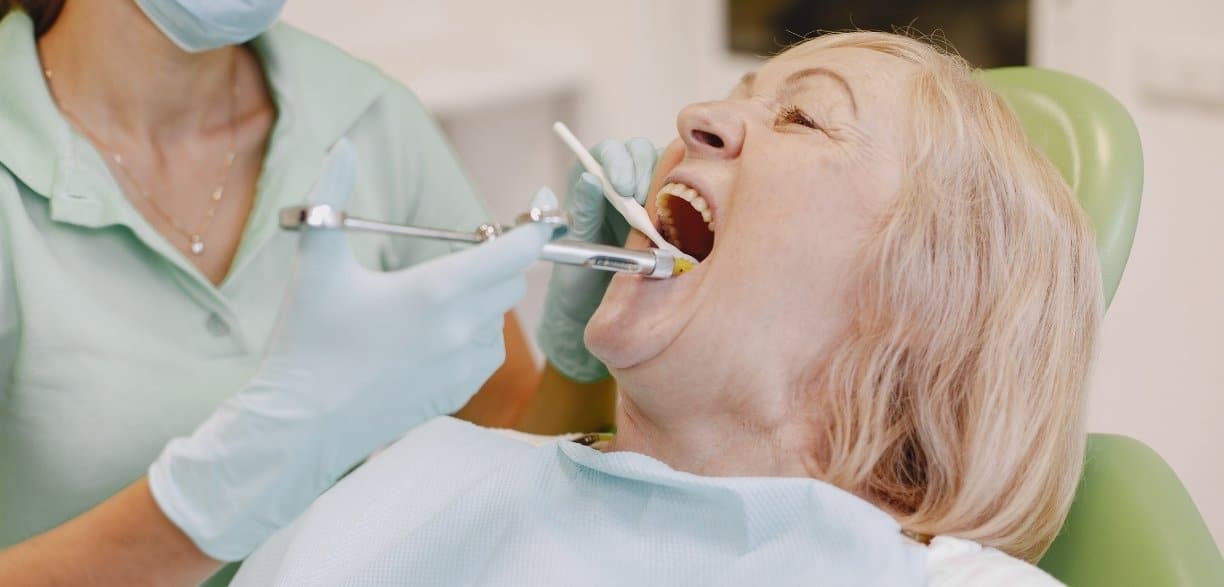
We’ve all been there – waking up in the middle of the night with a throbbing toothache, biting down on something hard and feeling a sharp pain, or accidentally knocking out a tooth while playing sports. Dental emergencies can strike at any time and it’s easy to panic when you’re faced with sudden dental pain or trauma. But don’t worry, we’ve got you covered! In this blog post, we’ll walk you through what to do when you experience a dental emergency so that you can stay calm and take action quickly to minimize damage and get the help you need. So sit tight and read on – your teeth will thank you for it!
What is a Dental Emergency?
A dental emergency is any situation that requires immediate attention to relieve severe pain, stop bleeding, or save a tooth. Understanding the severity of the issue can help you determine whether you need to visit an emergency dentist or head straight to the hospital. Some dental emergencies require urgent care, while others can be managed temporarily until you see your dentist.
Common Dental Emergencies & What to Do
1. Severe Toothache
A throbbing toothache can be a sign of an infection, a cavity, or even a gum issue. Here’s what you should do:
- Rinse your mouth with warm salt water to reduce bacteria.
- Use floss to remove any food debris that may be causing irritation.
- Take over-the-counter pain relievers like ibuprofen to manage discomfort.
- Contact your dentist immediately if the pain persists or worsens.
2. Knocked-Out Tooth
Losing a tooth due to trauma can be distressing, but acting quickly can increase the chances of saving it.
- Find the tooth and handle it by the crown (avoid touching the root).
- Rinse it gently with water, but do not scrub or remove any tissue fragments.
- Try to reinsert the tooth into its socket if possible. If not, place it in a cup of milk or saliva to keep it moist.
- Get to an emergency dentist within 30 minutes for the best chance of reattachment.
3. Chipped or Broken Tooth
A broken tooth can be painful and may lead to further damage if left untreated.
- Rinse your mouth with warm water to clean the area.
- Apply a cold compress to the outside of your cheek to reduce swelling.
- Gather any broken pieces and take them to your dentist.
- Avoid chewing on the affected side until you receive professional treatment.
4. Objects Stuck Between Teeth
If something is lodged between your teeth and causing discomfort:
- Use dental floss or an interdental brush to gently remove the object.
- Avoid using sharp objects like needles or toothpicks, as they can damage your gums or teeth.
- If you’re unable to remove the object, seek professional help.
5. Abscessed Tooth
An abscess is a serious infection that occurs near the root of a tooth or in the gums. It requires immediate attention to prevent complications.
- Rinse your mouth with warm salt water to reduce bacteria and ease pain.
- Take over-the-counter pain medication if needed.
- Seek emergency dental care as soon as possible. You may require antibiotics and a root canal treatment.
When to Seek Emergency Dental Care
Not every dental issue requires an emergency visit, but you should seek immediate care if you experience:
- Uncontrollable bleeding
- Severe, persistent pain
- A knocked-out or loose tooth due to trauma
- Signs of infection such as swelling, fever, or pus
- A broken or cracked tooth causing sharp pain
If you’re unsure whether your situation qualifies as an emergency, contact your dentist for guidance.
How to Prevent Dental Emergencies
While some dental emergencies are unavoidable, taking proactive measures can help reduce the risk:
- Maintain good oral hygiene by brushing and flossing daily.
- Visit your dentist for regular check-ups and cleanings.
- Wear a mouthguard during sports activities to protect against injury.
- Avoid chewing on hard foods like ice, popcorn kernels, or hard candies.
- Never use your teeth as tools to open packages or bottles.
Final Thoughts
Dental emergencies can be nerve-wracking, but staying calm and knowing the right steps to take can help you manage the situation effectively. Whether it’s a severe toothache, a broken tooth, or an abscess, quick action can prevent further damage and ensure a better outcome. Keep your dentist’s contact information handy and don’t hesitate to seek professional care when needed.



